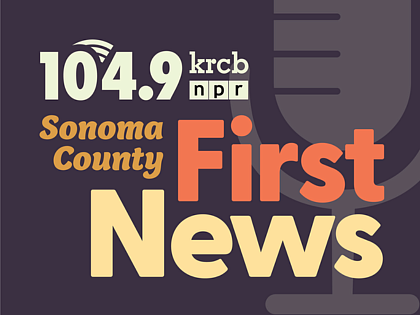 photo credit: Courtesy, City of Santa Rosa
photo credit: Courtesy, City of Santa RosaNew county service to mimic city program, defuse people in crisis
Mental health help in the form of someone to talk to in person, or more intensive counseling and other services will become available next year, across Sonoma County, around the clock.
Sonoma County's board of supervisors this week unanimously approved a state mandated plan. It will build a county version of mobile crisis support teams. Similar programs are already up and running in Petaluma, Cotati, Rohnert Park, Santa Rosa and elsewhere.
Right now, the county's service is only staffed during certain hours. And councilors may only respond to calls for help if they originate from certain parts of the county.
Mary-Frances Walsh is executive director of NAMI Sonoma County. It's the local chapter of the National Alliance on Mental Illness, a national organization focused on mental health.
Walsh said the new service is desperately needed, and could prove transformational.
"When behavioral health crisis services are effective, they help community members feel confident in asking for help. And they learn, they learn pretty quickly that making a phone call to get help results in a appropriate level of response, not in a loved one being shoved into a police car or dropped off at the jail or perhaps taken to an emergency department that is not well equipped to handle them," Walsh said.
Once up and running, teams will aim to respond to calls from urban areas within an hour, and within two hours for rural areas.
Law enforcement won't be dispatched for such calls, unless there are special concerns.
The new service will have the equivalent of about twenty full time employees.
Supervisors spent some time discussing outreach and how to assure the public becomes familiar with the new phone number once it becomes operational.
Wendy Sanders with Sonoma County's Department of Health Services, said while important, memorizing the number probably won't be critical.
"If someone is in crisis or a family member is in crisis, they are going to call the most easily remembered number, which is often 9-1-1, and that's OK."
Supervisors are looking at basing teams at dispersed locations around the county to cut response times.
Annual funding for the new program is a bit over $4 million. It will be covered by Medi-Cal, federal funds and money raised by the county's Measure O.
Supervisors are calling on hospitals to help fund the program.
Officials believe that on balance, the county will save money by reducing the number of service calls handled by law enforcement.

 Live Radio
Live Radio




